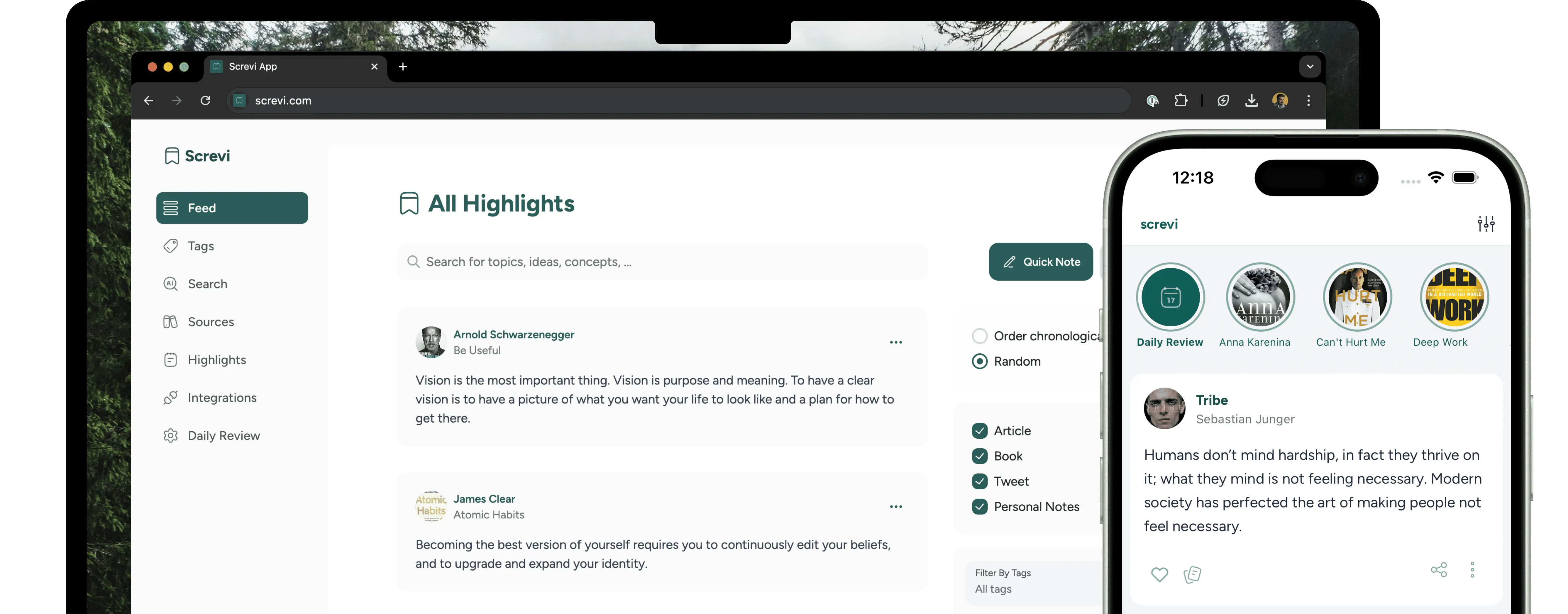Most Productivity Systems Are a Waste of Time
A lumberjack spends days sharpening his axe, polishing the blade, and admiring the tool’s perfection, but barely cuts any trees. While his neighbor, with a modest but sharp axe, fells trees steadily each day.
Over the years, I’ve tried almost every productivity app you can imagine.
From Notion to Obsidian, Evernote to Reflect: I’ve tried them all.
At first, the excitement is always there. Everything feels organized, every piece of information perfectly linked, every workflow mapped out.
But after a few hundred notes, no matter how perfect the structure is, those systems become overwhelming.
It becomes a part-time job just to maintain them.
So inevitably, I stop using them.
Complex systems become a distraction, a new way to procrastinate, preventing us from doing the work that actually matters.
Don’t be like the Lumberjack
A lumberjack spends days sharpening his axe, polishing the blade, and admiring the tool’s perfection, but barely cuts any trees.
While his neighbor, with a modest but sharp axe, fells trees steadily each day.
Over-preparing and obsessing over tools doesn’t lead to results: Action does.
Productivity tools should be functional.
They should be a means to an end, not an end in themselves.
Why Do You Even Need a Productivity System?
Before trying to build a system, or a second brain, ask yourself: What is the end goal?
If you can’t answer that, don’t even bother starting one.
In my case, I have 3 goals:
- Saving Info: Save highlights from books I read, tweets I come across, conversations I have, etc.
- Retrieving and Searching: Have all the things I save easily available. Preferably without dealing with folder structures.
- Do the actual work: Write, create content.
Everything else, linked notes, graph nodes and pretty icons are all a waste of time for me.
Using them felt productive, but every second spent there, was a second spent not creating value.
My Current Workflow
I’ve stripped things down to the essentials.
My workflow boils down to two simple tools that align directly with my goals:
- Screvi: A central hub where I collect all my highlights and notes from Kindle, Twitter, physical books, and voice transcriptions. And then find what I need with AI Search. The less time I spend on it, the better.
- A Place To Write: Apple Notes, a paper notebook or daily notes on Obsidian. Any of them works.
No endless folders. No complex linked databases. No time wasted on creating and managing systems.
Just 100% focus on what truly matters: Collecting Ideas and Creating
Screvi: Saving and Retrieving Highlights and Ideas

Screvi keeps track of the highlights and ideas that I find without them getting buried in clutter.
Here’s what makes it different:
- A Central Hub: Screvi collects all my reading highlights and bookmarks in one place, from books to tweets to physical notes.
- Integrations: Imports Kindle Notes, saved Tweets, etc.
- AI Search: The semantic search feature makes finding highlights easy. Even if you don’t remember the exact wording, it finds relevant notes based on themes or concepts. No need for complex links and systems, let AI do that work for you.
- No Fluff: It focuses on saving and rediscovering your highlights and best ideas, and doesn't try to be anything else.
A Place To Write
Pen & paper, Apple Notes, Obsidian, whatever you prefer.
Any of them work, as long as you can write on them.
This is where the actual work happens.
That being said, I still use Day One to journal, especially when I travel because I love seeing my entries on a map, along with photos I take during my trips.
And If I have any insights while journaling, I save them into Screvi so that I can find them later.
Focus on ROI
Most productivity systems make you feel busy, not productive.
This workflow is different: It’s about doing less but doing what actually matters.
Collect the ideas that matter, write about them, hit publish, and move on.
Forget the complicated systems that promise to change your life. Focus on delivering value.
But what do you think?
Do you consider your Second Brain/Productivity system efficient?
Or are you like me, and use them mostly as a form of procrastination?